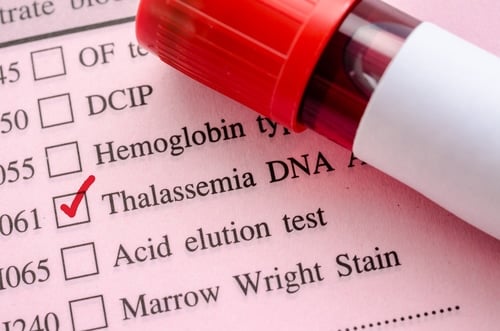What Does Thalassemia Have To Do With Gout?
Thalassemia is a group of blood disorders that are genetically inherited which seriously constricts the body’s ability to produce hemoglobin, a protein that carries the oxygen we breathe throughout our lungs and entire body. In addition, thalassemia patients have a lower than average count of red blood cells in their body, the red blood cells usually being too small in size. Hemoglobin is made from bone marrow by using the iron that our body takes from our food in order to create the hemoglobin.
So the bone marrow from thalassemia sufferers does not produce enough hemoglobin or red blood cells for that matter and this causes anemia and fatigue since the body is deprived of oxygen. People who suffer from mild thalassemia like myself may not require any treatment whatsoever. If it’s severe thalassemia, the patient will usually require blood transfusions to replenish hemoglobin and red blood cells. Exercise and diet does help deal with the symptoms of thalassemia, especially fatigue.
Thalassemia mostly occurs to people from Italy, Greece, Middle East, Africa and Asia, so if you come from those regions and you suffer from slight to severe thalassemia, chances are you will eventually develop hyperuricemia in the blood. Uric acid may rise and you are at an increased risk of developing gout. The evidence is also seen in rheumatoid arthritis patients as well! Here is a good case report from the Journal Indian Academy of Clinical Medicine.
I know this touches only a small minority of gout patients but although I suffer from very mild thalassemia, perhaps this was the root cause of my gout development in my early 20s and can be another factor that can cause somebody to develop gout. If you do suffer from thalassemia, talk to your doctor and closely monitor your uric acid levels. Avoid any excess iron unless your doctor recommends it.
Make sure to eat a healthy diet that will help you feel better and keep your energy high. Your diet should contain adequate calcium and vitamin D in order to keep your bones healthy. You should also speak to your doctor about taking a folic acid supplement to help your body produce more new red blood cells. It’s also important to protect yourself from infections, so wash your hands frequently and avoid sick people.

